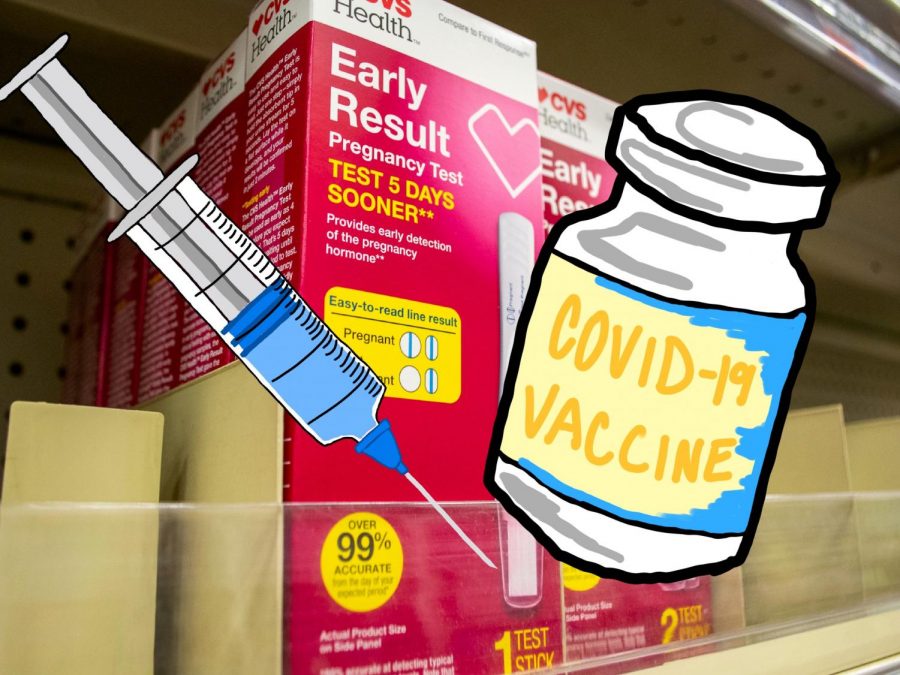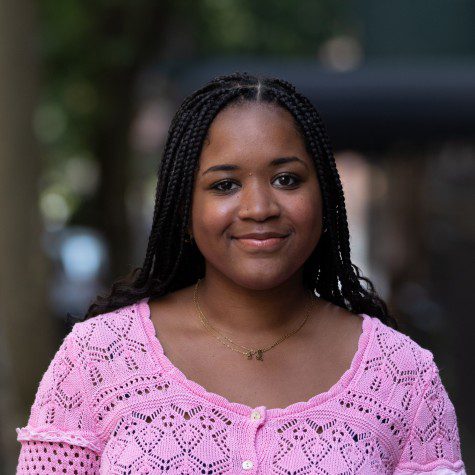Vaccinated pregnant people pass COVID antibodies to their babies, Langone study finds
NYU researchers hope that the study results will diminish vaccine hesitancy among pregnant people.
A study at NYU Langone found that vaccinated pregnant women can pass COVID-19 antibodies to their babies. Researchers hope the study will reduce vaccine hesitancy in pregnant people. (Staff Photo and Illustration by Manasa Gudavalli)
November 5, 2021
Jenna Silverstein got the COVID-19 vaccine and a booster shot while she was pregnant — one of the 35% of pregnant people aged 18-49 to receive a vaccine. Because Silverstein, an OB-GYN and chief resident at NYU Langone Helath, has an increased risk of exposure to the virus, she decided it was safer to get the vaccine and booster shot while pregnant instead of waiting to give birth.
“I empathize with the pregnant people who are hesitant and always remind myself that [the] majority of vaccine hesitancy comes from fear,” Silverstein said. “Everyone wants the best for their baby. People are just unsure what is the safest option.”
Silverstein got the vaccine before NYU Langone researchers concluded that pregnant people who receive the Pfizer-BioNTech or Moderna COVID-19 vaccines are not at risk for severe reactions and pass high levels of antibodies onto their babies. The study was conducted by researchers Megan Trostle, Maria Aguero-Rosenfeld, Ashley Roman and Jennifer Lighter to determine whether the COVID-19 vaccine protects pregnant people in the same way as it protects others.
“Now that there is safety data in pregnancy, I feel even more confident in my prior decision and now have the additional knowledge that I can potentially also help protect my baby,” Silverstein said. “I am hopeful that all new data on COVID-19 and pregnancy will help diminish vaccine hesitancy, as all of the data we have so far supports the positive aspects and dispels possible negative concerns.”
The Langone research showed that 100% of the 36 newborns studied received antibodies from pregnant people who were vaccinated during pregnancy. According to the study, antibodies cross the placenta and pass through blood to the infants.
“The biggest takeaway is that we showed vaccination is helpful,” said Trostle, a third-year fellow at the Maternal-Fetal Medicine Fellowship and study researcher. “We knew it was helpful for adults and pregnant women, but this gives an added benefit for vaccination. I hope that it gives people who are consulting pregnant women another benefit to get vaccinated.”
Contracting COVID-19 puts pregnant people at increased risk for severe illness, preterm birth and adverse pregnancy outcomes, according to the Centers for Disease Control and Prevention. The American College of Obstetricians and Gynecologists and the Society for Maternal-Fetal Medicine — the two leading OB-GYN organizations — recommended in July this year that all pregnant people should receive the vaccine.
Trostle hopes that the Langone group’s research will help answer scientific questions about the relationship between COVID-19 vaccines and pregnancy while easing the fears of pregnant patients who are unsure if they should get the shot.
“Especially with all of the talk about boosters now, is there an ideal time in pregnancy to get vaccinated when the antibodies might have the highest concentration in the maternal blood?” Trostle said. “The timing of vaccination will be a good question for future research.”
Contact Lauren Ashe at [email protected].


























































































































































